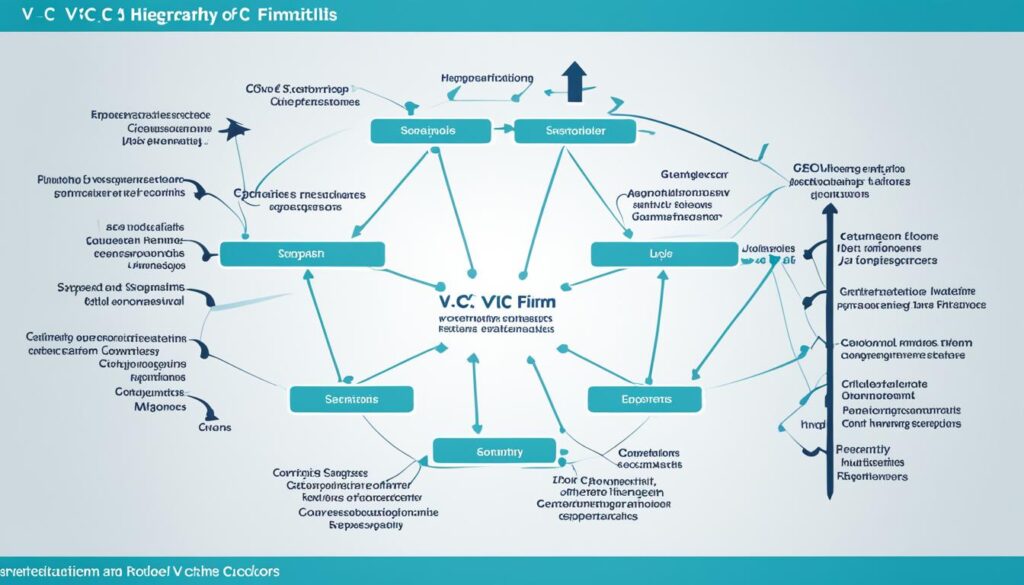Are you curious about the inner workings of the venture capital (VC) industry? Venture capital firms are on the hunt for the next big thing, searching the startup world for the next Meta (formerly Facebook) or YouTube. These firms provide risky capital infusions to early-stage or small companies that lack access to more conventional sources of funding, such as bank loans. In exchange, the venture capitalists receive an ownership stake in the company and significant managerial oversight. The venture capital associate is the most junior member of a VC firm, but these positions are highly competitive, involve significant responsibility and independent thinking, and command strong salaries.
Key Takeaways
- Venture capital firms invest in early-stage startups and small businesses with high growth potential.
- Venture capital associates play a crucial role in sourcing deals, conducting due diligence, and supporting portfolio companies.
- The VC industry is highly competitive, with associates taking on significant responsibility and independent thinking.
- Venture capital associates command strong salaries, reflecting the value of their work.
- Understanding the venture capital career path and the day-to-day responsibilities of a VC associate is crucial for those interested in this dynamic industry.
Understanding Venture Capital
Venture capital firms play a crucial role in funding and supporting the growth of startup companies and small businesses. These firms provide the necessary capital and resources to entrepreneurs looking to turn their innovative ideas into successful, scalable ventures. To better understand the venture capital industry, let’s delve into the key elements that define it.
What Is Venture Capital?
Venture capital refers to the financing provided by investors, typically venture capital firms, to early-stage or high-growth companies that have limited access to more conventional sources of capital, such as bank loans. In exchange for this risky investment, venture capitalists receive an ownership stake in the company and often a significant level of managerial oversight and influence.
The Role of Venture Capitalists
Venture capitalists serve as essential partners for entrepreneurs, offering not only financial resources but also strategic guidance, industry expertise, and valuable connections. They play a pivotal role in identifying promising startups, providing the necessary funding to help them scale, and actively supporting the growth and development of these companies.
Key Players in the VC Industry
The venture capital industry is composed of several key players, each with a distinct role to play:
- Venture Capital Firms: These firms manage investment funds and actively seek out promising startups and small businesses to invest in.
- Limited Partners (LPs): LPs are the individuals or institutions, such as pension funds and endowments, that provide the capital to venture capital firms to invest.
- Entrepreneurs and Startups: These are the founders and small businesses that receive the necessary funding and support from venture capitalists to launch and grow their innovative ideas.
The intricate web of relationships and interactions between these key players is what drives the venture capital industry and fuels the growth of groundbreaking startups and small businesses.
Responsibilities of a Venture Capitalist
Venture capitalists have a diverse range of responsibilities that encompass various aspects of the investment process and portfolio management. From sourcing and evaluating promising investment opportunities to providing ongoing support to their portfolio companies, venture capitalists play a crucial role in nurturing the growth and success of innovative startups.
Sourcing and Evaluating Investment Opportunities
One of the primary responsibilities of a venture capitalist is to proactively identify and evaluate potential investment opportunities. This involves actively searching for promising startups, conducting market research, and networking within the entrepreneurial ecosystem to stay informed about the latest industry trends and emerging technologies. Venture capitalists must possess a keen eye for spotting disruptive innovations and the potential for long-term growth.
Due Diligence and Deal Execution
Once a promising investment opportunity is identified, venture capitalists must conduct thorough due diligence to assess the viability and potential of the startup. This includes analyzing the company’s financial statements, evaluating the management team, and examining the competitive landscape. Venture capitalists must then work closely with the founders to structure the investment terms, negotiate the deal, and ensure a successful transaction.
Portfolio Company Support
Venture capitalists do not simply provide funding and then step back; they actively support their portfolio companies throughout the various stages of growth. This may involve offering strategic guidance, connecting the startup with valuable resources and industry connections, and providing hands-on assistance with operational and financial matters. Venture capitalists leverage their experience and expertise to help their portfolio companies navigate challenges and achieve their growth objectives.
Networking and Brand-Building
Successful venture capitalists understand the importance of building a strong brand and maintaining a robust network within the entrepreneurial ecosystem. They actively participate in industry events, conferences, and networking activities to stay connected with the latest trends, identify potential investment opportunities, and enhance the firm’s reputation. By nurturing relationships with entrepreneurs, other investors, and key industry stakeholders, venture capitalists can effectively source deals and add value to their portfolio companies.
Fundraising and LP Relations
Venture capital firms rely on the capital provided by limited partners (LPs), such as institutional investors and high-net-worth individuals, to fund their investment activities. Venture capitalists are responsible for raising new funds, communicating the firm’s investment strategy and performance to LPs, and maintaining strong relationships with their limited partners. Effective fundraising and LP relations are crucial for the long-term success and sustainability of a venture capital firm.
Internal Operations and Administration
In addition to their external-facing responsibilities, venture capitalists must also attend to the internal operations and administrative tasks of their firm. This may include managing the firm’s investment portfolio, overseeing financial reporting and compliance, and supporting the firm’s overall strategy and growth initiatives. Efficient internal operations and administrative processes are essential for ensuring the smooth functioning of a venture capital firm.

What does a VC job look like?
Venture capital (VC) associates have two primary responsibilities that shape their day-to-day work. The first is sourcing new deals, which involves proactively identifying and screening potential investment opportunities. This often requires extensive industry research, networking with entrepreneurs, and conducting cold outreach to promising startups. The second core function is supporting existing deals, where associates assist in the due diligence process, financial modeling, and other analytical work to help their firm evaluate and execute transactions.
Daily Activities and Responsibilities
A typical day for a VC associate may include a mix of the following activities:
- Researching and identifying promising VC job description opportunities in target industries or sectors
- Reaching out to and building relationships with entrepreneurs and founders to uncover new VC daily activities potential investments
- Conducting in-depth due diligence on target companies, including financial analysis, market assessments, and competitive analysis
- Preparing investment memos, financial models, and other materials to support the firm’s investment decisions
- Collaborating with portfolio company management teams to provide strategic advice and operational support
- Attending industry events, conferences, and meetings to network and stay up-to-date on market trends
Skill Set and Experience Required
Succeeding in a VC skill set and experience role requires a unique combination of skills and experience. Some of the key capabilities that VC firms seek in their associates include:
- Strong financial modeling and analytical skills to evaluate investment opportunities
- Extensive knowledge of specific industries or sectors to identify promising startups
- Excellent communication and relationship-building abilities to effectively interact with entrepreneurs and portfolio companies
- The capacity to work independently, take initiative, and make decisions with limited oversight
- Relevant prior experience, such as in investment banking, management consulting, or at a startup
Navigating the fast-paced and high-stakes world of venture capital requires a diverse skill set and the ability to thrive in a dynamic, entrepreneurial environment. VC associates play a crucial role in shaping the future of innovative businesses, making this an intellectually stimulating and potentially lucrative career path for those with the right qualifications.

VC Career Path and Hierarchy
The venture capital industry offers a clear and structured career progression, with professionals advancing through various roles and levels of responsibility. Understanding the typical VC career path and hierarchy can help aspiring professionals navigate this dynamic field.
Entry-Level Roles: Analyst and Associate
The most common entry-level positions in the VC industry are analyst and associate. Analysts are often recent college graduates or individuals with a few years of experience in related fields, such as investment banking or consulting. They are responsible for supporting the due diligence process, conducting research, and assisting with portfolio company management. Associates, on the other hand, are typically hired after completing an MBA program and are expected to take on more independent work, including sourcing new investment opportunities, evaluating deals, and serving as a liaison between the VC firm and its portfolio companies.
Mid-Level Roles: Principal and Vice President
As VC professionals gain more experience and demonstrate a strong track record of successful investments, they can progress to mid-level roles such as principal and vice president. Principals are typically responsible for leading investment decisions, managing portfolio companies, and mentoring junior team members. Vice presidents often take on a more strategic role, overseeing the firm’s investment thesis, managing relationships with limited partners, and contributing to the overall direction of the firm.
Senior-Level Roles: Partner and Managing Director
The highest levels of the VC career path are partner and managing director. Partners are the most senior professionals within a VC firm, with significant influence over investment decisions, firm strategy, and the allocation of capital. Managing directors are responsible for leading the firm’s overall operations, including fundraising, talent management, and firm-wide initiatives. These senior-level roles are typically reserved for individuals who have built an impressive track record of successful investments and have demonstrated strong leadership, strategic thinking, and relationship-building skills.

Compensation in Venture Capital
Compensation in the venture capital industry is a crucial factor that attracts top talent and drives the success of VC firms. This compensation structure typically consists of three main components: base salaries, year-end bonuses, and a share of the profits, known as carried interest (carry).
Base Salaries and Bonuses
The base salaries and annual bonuses for VC professionals are typically funded from the management fees charged by the firm. These fees, which can range from 1% to 2.5% of the total assets under management, provide the financial resources to compensate the team. Bonuses are often tied to individual performance, with factors such as deal sourcing, diligence, and portfolio company support taken into consideration.
Carried Interest (Carry)
The most lucrative component of VC compensation is the carried interest, which represents a share of the profits generated from the firm’s investments. Carried interest is typically structured as a percentage, often 20-25%, of the profits realized when a portfolio company is successfully exited, either through an acquisition or initial public offering (IPO). This incentive-based compensation aligns the interests of VC professionals with those of the firm’s limited partners, as they all benefit from the successful performance of the investment portfolio.
Compensation Levels by Role
Compensation levels in the venture capital industry can vary significantly depending on the size of the firm, the specific role, and the individual’s track record. At larger VC firms with over $500 million in assets under management, partners can earn $350,000 or more per year, including base salary, bonus, and carried interest. In contrast, more junior roles like VC associates and analysts typically earn between $120,000 to $150,000 in total compensation.

Breaking into Venture Capital
Embarking on a VC career can be an enticing yet challenging path for many aspiring professionals. However, with the right approach and preparation, individuals can enhance their chances of successfully breaking into the venture capital industry. The key lies in gaining relevant experience, building a strong network, and developing analytical and financial skills that are highly valued by VC firms.
Gaining Relevant Experience
Venture capital firms often seek candidates with prior experience in fields such as investment banking, management consulting, or even startups themselves. These backgrounds provide exposure to the type of analytical, strategic, and problem-solving skills required to thrive in a VC career. Candidates who have demonstrated success in these industries may have a competitive edge when pursuing VC recruiting opportunities.
Building a Network
Networking within the venture capital community is crucial for aspiring how to get into venture capital professionals. Attending industry events, conferences, and informational interviews can help individuals establish valuable connections with VC partners, analysts, and associates. These connections can provide insights into the industry, potential job opportunities, and guidance on navigating the VC career entry process.
Developing Analytical and Financial Skills
Venture capital firms place a strong emphasis on analytical and financial modeling capabilities. Aspiring VC professionals should strive to develop proficiency in areas such as financial statement analysis, valuation methodologies, and data-driven decision-making. Demonstrating these skills through relevant coursework, internships, or personal projects can significantly enhance one’s chances of securing a VC career.

By leveraging these strategies, individuals can significantly improve their prospects of breaking into the competitive venture capital industry and embarking on a rewarding and dynamic VC career.
Pros and Cons of a VC Career
Pursuing a career in venture capital can be a highly rewarding, yet challenging path. On the positive side, VC professionals have the unique opportunity to work with innovative startups and entrepreneurs, shaping the future of industries and technologies. The financial upside can also be significant, particularly for those who are able to identify and back the next industry-disrupting success story.
However, the venture capital industry also presents its fair share of challenges. The high-risk nature of VC investments means that success is not guaranteed, and the intense competition for roles within this tiny industry can make it difficult to break in and advance. Additionally, the demanding work environment, with long hours and high-stress situations, especially around deal closings, can take a toll on work-life balance.
Aspiring VC professionals should carefully weigh the advantages and disadvantages of a VC career, as well as their own goals and lifestyle preferences, to determine if this dynamic and fast-paced industry is the right fit for them.
| Pros of a VC Career | Cons of a VC Career |
|---|---|
|
|
Ultimately, a career in venture capital requires a careful evaluation of the pros and cons of the industry, as well as a willingness to navigate the challenges and embrace the potential rewards. For those who are up for the task, a VC career can be a highly rewarding and impactful path.

Work-Life Balance in VC
The venture capital industry is known for its demanding work schedule and high-pressure environment. Venture capital associates, in particular, can face long hours and intense workloads, especially around deal closings. The work-life balance in VC can be challenging, with professionals often required to be available to their portfolio companies at all hours and to attend numerous industry events and networking functions.
However, some VC firms are making efforts to improve work-life balance in the industry. Professionals in the VC work hours and lifestyle may have more flexibility and autonomy compared to other finance roles, allowing them to better manage their time and responsibilities.
| Factors Impacting Work-Life Balance in Venture Capital | Potential Solutions |
|---|---|
|
|
While the work-life balance in venture capital can be challenging, some firms are taking steps to address these issues and provide a more sustainable work environment for their employees. By incorporating policies and practices that support a healthier work-life balance, VC firms can help attract and retain top talent in the industry.

Venture Capital vs. Other Finance Careers
Venture capital firms share some similarities with private equity firms in terms of the deals they make and the sources of financing they utilize. However, there are key distinctions that shape the roles and responsibilities of venture capital associates compared to their counterparts in investment banking or private equity.
One primary difference is the type of companies that VC firms typically target. While private equity firms often invest in more established, mature businesses, venture capitalists focus their efforts on early-stage, high-growth startups. This means that venture capital associates are often tasked with more qualitative responsibilities, such as sourcing new investment opportunities and providing hands-on support to portfolio companies, rather than the more analytical and execution-oriented work common in investment banking or private equity.
Moreover, the venture capital industry has a unique compensation structure, with venture capitalists typically earning management fees (around 2% on funds raised) and a share of the profits, known as “carried interest” (approximately 20% on the returns delivered to their limited partners). This long-term, performance-based compensation model can be quite rewarding for successful VC professionals, but it also requires patience and a longer time horizon compared to other finance careers.
| Characteristic | Venture Capital | Investment Banking | Private Equity |
|---|---|---|---|
| Target Companies | Early-stage, high-growth startups | Established companies, often public | Mature, often underperforming companies |
| Key Responsibilities | Deal sourcing, portfolio company support | Financial modeling, transaction execution | Due diligence, post-acquisition management |
| Compensation Structure | Management fees, carried interest | Base salary, annual bonus | Base salary, carried interest |
Overall, the venture capital career path offers a unique blend of qualitative and quantitative work, a focus on innovative startups, and the potential for significant long-term financial rewards. While it may not be the right fit for everyone, the VC vs. other finance careers distinction can provide valuable insights for those considering their options in the world of finance.

Notable VC Firms and Success Stories
The venture capital industry is home to numerous prominent top VC firms that have played a pivotal role in funding and supporting some of the most successful startups and tech companies. Notable VC firms include Andreessen Horowitz, Sequoia Capital, Kleiner Perkins, and Accel, among others. These firms have been involved in funding the early stages of companies like Meta (formerly Facebook), Google, Airbnb, and Uber, generating exceptional returns for their investors. The ability to identify and support the next generation of innovative companies is a key driver of successful VC investments in the industry.
To illustrate the impact of VC firm case studies, consider the following statistics:
| VC Firm | Assets Under Management |
|---|---|
| Andreessen Horowitz | $35 billion |
| Sequoia Capital | $85 billion |
| New Enterprise Associates (NEA) | $25 billion |
| Accel | $50 billion |
| Tiger Global Management | $58 billion |
| Index Ventures | $13 billion |
| Lightspeed Venture Partners | $18 billion |
| Khosla Ventures | $15 billion |
| Kleiner Perkins | $6.8 billion |
| Bessemer Venture Partners | $20 billion |
These statistics highlight the significant assets under management controlled by the top VC firms, underscoring their ability to support and nurture the next generation of successful VC investments and VC firm case studies.

Conclusion
Embarking on a career in venture capital can be a truly rewarding, yet challenging, path. VC professionals play a pivotal role in providing funding and support to early-stage startups and high-growth companies, with the potential for substantial financial gains if they can identify and back the next industry-disrupting success story. However, the venture capital industry is also highly competitive, with a demanding work environment and significant risks involved in the investments.
Aspiring VC professionals must develop a unique skill set, including strong analytical and financial modeling abilities, industry knowledge, networking and relationship-building skills, and the capacity to work independently and take on substantial responsibility. Building a robust network within the VC community and gaining relevant experience, such as in investment banking, management consulting, or at a startup, are also crucial for breaking into this dynamic industry.
As the venture capital industry continues to evolve, the demand for talented professionals who can navigate the complexities and challenges of this field will only grow. By leveraging their expertise, passion, and a willingness to take calculated risks, VC professionals can play a vital role in fueling the growth and innovation that drives the success of the world’s most promising startups and companies. The conclusion on VC career and the summary of VC job and industry highlight the immense potential and rewards of this dynamic and rewarding career path.
